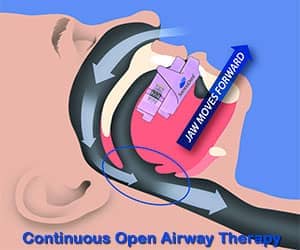Pressure positive airway continuous cpap devices types market machine breathing bipap different insights premium press release
Table of Contents
Table of Contents
Do you struggle with sleep apnea or other breathing-related sleep disorders? Continuous positive airway pressure (CPAP) therapy may be the solution you’re looking for. Remote sleep studies make it easier than ever before to diagnose and manage these conditions from the comfort of your own home.
It’s no secret that sleep disorders like sleep apnea can have a serious impact on your quality of life. Not only can they leave you feeling tired and irritable during the day, but they can also lead to more serious health problems if left untreated. Unfortunately, many people who suffer from these disorders are hesitant to seek treatment because they’re worried about the inconvenience and expense of traditional diagnostic and management methods. That’s where CPAP therapy and remote sleep studies come in.
CPAP therapy involves using a machine that delivers a constant stream of air pressure to keep your airway open while you sleep. This can help reduce the number of pauses in your breathing that occur throughout the night and prevent disruptions to your sleep. Remote sleep studies make it possible to receive a diagnosis and start CPAP therapy without ever leaving your house.
So, what are the main benefits of CPAP therapy and remote sleep studies? Firstly, they’re incredibly convenient. You don’t need to worry about traveling to a sleep center or spending the night in an unfamiliar environment. They can save you time and money, as well as reduce the stress associated with traditional testing methods. Additionally, CPAP therapy can significantly improve your quality of life by reducing symptoms of sleep apnea, including snoring, daytime sleepiness, and morning headaches.
My Personal Experience with CPAP Therapy and Remote Sleep Studies
As someone who has struggled with sleep apnea for years, I was initially hesitant to try CPAP therapy. The thought of wearing a mask while I slept seemed uncomfortable and overwhelming. However, once I tried it, I was amazed at the difference it made in my energy levels and overall well-being. Remote sleep studies made it possible to receive a diagnosis and start treatment without having to take time off work or travel to a sleep center.
The Target of CPAP Therapy and Remote Sleep Studies
CPAP therapy and remote sleep studies are targeted towards individuals who suffer from sleep apnea and other breathing-related sleep disorders. They can benefit anyone who struggles with snoring, daytime sleepiness, or morning headaches. They’re also ideal for those who are looking for a more convenient and affordable diagnostic and management option than traditional testing methods.
How do Remote Sleep Studies Work?
During a remote sleep study, you’ll wear a small device that measures breathing patterns, oxygen levels, and other sleep-related data. This device will transmit the information to a sleep specialist, who will use it to diagnose and treat your sleep disorder. This process is convenient and easy to do from the comfort of your own home.
What to Expect During CPAP Therapy
CPAP therapy involves wearing a mask over your nose and/or mouth while you sleep. The mask is connected to a machine that delivers a steady stream of air pressure to keep your airway open. You may experience some discomfort or irritation in the beginning, but most people find that they adapt quickly to the therapy.
Conclusion of CPAP Therapy and Remote Sleep Studies
If you or a loved one struggles with sleep apnea or other breathing-related sleep disorders, CPAP therapy and remote sleep studies may be the solution you’re looking for. They’re convenient, affordable, and can significantly improve your quality of life. Don’t let sleep disorders disrupt your life any longer - consider CPAP therapy and remote sleep studies today.
Question and Answer
Q: How effective is CPAP therapy?
A: CPAP therapy is highly effective in treating sleep apnea and other breathing-related sleep disorders. Studies have shown that it can reduce symptoms like snoring, daytime sleepiness, and morning headaches, as well as improve overall quality of life.
Q: Will I need to wear a CPAP mask every night?
A: Yes, to be effective, CPAP therapy should be used every night while you sleep. However, many people find that the benefits of using a CPAP machine far outweigh any inconvenience or discomfort.
Q: How do I know if I need a remote sleep study?
A: If you experience symptoms like snoring, gasping for air during sleep, or daytime sleepiness, a remote sleep study may be necessary. Your doctor can assess your individual needs and determine whether a sleep study is necessary.
Q: How can I make CPAP therapy more comfortable?
A: There are several things you can do to make CPAP therapy more comfortable, such as adjusting the mask fit, using a humidifier, and wearing a chinstrap to keep your mouth closed. Your doctor can also offer tips and advice on how to improve comfort levels.
Gallery
Mechanism Of Action Of Continuous Positive Airway Pressure Therapy IV

Photo Credit by: bing.com / airway mechanism
What Is Continuous Positive Airway Pressure Therapy? | GenesisCare

Photo Credit by: bing.com / continuous airway positive pressure
Continuous Positive Airway Pressure (CPAP) Devices Market

Photo Credit by: bing.com / pressure positive airway continuous cpap devices types market machine breathing bipap different insights premium press release
Continuous Positive Airway Pressure (CPAP) -Therapie

Photo Credit by: bing.com / cpap apnea airway nasal sleepers suffering bipap snoring therapie hable dificultades prism somsak eyeem using copd galeon fitnesslifestylehealthclub
Continuous Positive Airway Pressure Therapy | Nursing Information

Photo Credit by: bing.com / pressure positive airway continuous education health nursing information therapy choose board

